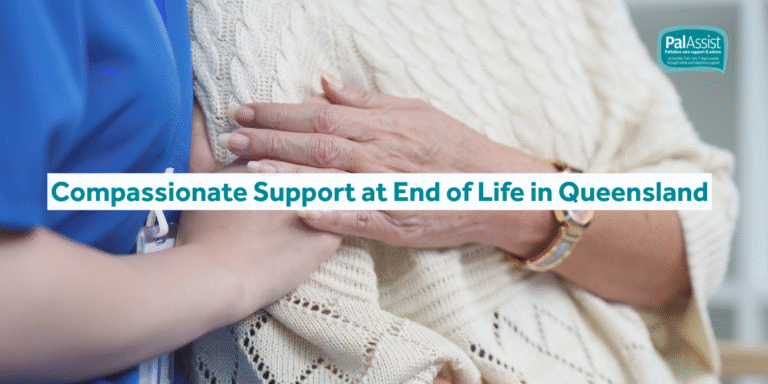Individual vs. Group Therapy: Which Is Better for Me?
Deciding to seek professional support is a major step toward improving your mental health. Once that decision is made, the next question often arises: should you pursue one-on-one sessions or join a group setting? Both options can be effective, but they offer different experiences and benefits. Understanding how each approach works can help you choose the path that best fits your needs, goals, and comfort level.
Understanding Individual Counseling
Individual counseling is the traditional model many people picture when they think of treatment. It involves meeting one-on-one with a licensed professional who helps you explore your emotions, thoughts, and behaviors.
Benefits of Individual Sessions
- Personalized attention: Each session focuses solely on your experiences, making it easier to dig deeply into issues.
- Privacy and confidentiality: Some people feel more comfortable opening up in a private setting.
- Flexible pacing: You and your counselor set the speed, adjusting as needed to match your progress.
- Tailored strategies: Techniques and exercises are designed specifically for your goals.
Possible Limitations
While private sessions provide focused support, they can sometimes feel isolating. You may not have the chance to hear how others are coping with similar challenges. In addition, individual counseling can be more expensive depending on your provider and insurance coverage.
Exploring Group Counseling
Group counseling brings together several participants who share similar concerns, guided by a trained professional. Groups often range from six to twelve members and meet regularly to discuss experiences, challenges, and progress.
Benefits of Group Sessions
- Shared understanding: Hearing others describe struggles similar to yours can reduce feelings of isolation.
- Learning from peers: Participants often share coping techniques and real-world strategies that have helped them.
- Opportunities to practice skills: Communication, boundary-setting, and relationship-building can be strengthened in a safe environment.
- Affordability: Group sessions usually cost less than one-on-one counseling.
Possible Limitations
Not everyone feels comfortable speaking in front of others. Group sessions also require balancing time among participants, so the focus may not always be on your personal story. Privacy can be another concern, though most groups establish clear confidentiality guidelines.
See also: Enhancing Feline Health Through Nutrition
Key Differences Between Individual and Group Options
Both settings provide valuable support, but they differ in structure and focus. Understanding these differences helps clarify which might serve you best.
Level of Attention
Individual sessions prioritize your unique experiences. Group sessions, while still supportive, divide attention among members.
Cost and Accessibility
Private sessions are often more expensive. Groups can be a more affordable way to access care, making them attractive for people with limited budgets.
Style of Support
A private setting may feel safer if you need to process trauma or highly personal issues. A group, on the other hand, can provide reassurance and motivation by showing you that others face similar challenges.
Opportunities for Social Growth
Group sessions naturally build social connections and communication skills. Individual sessions, while beneficial for self-reflection, don’t offer the same peer interaction.
Who Might Benefit More From Individual Counseling?
Certain circumstances make individual care especially valuable. You may benefit most from one-on-one sessions if you:
- Prefer privacy and confidentiality above all else
- Are dealing with trauma or sensitive topics you’re not ready to share in front of others
- Want highly personalized strategies to address your challenges
- Need flexibility in scheduling and session focus
These sessions provide depth and privacy that some individuals require for meaningful progress.
Who Might Benefit More From Group Counseling?
For others, shared experiences and peer support create a more powerful healing environment. Group sessions may be a strong fit if you:
- Feel isolated and want to connect with others facing similar challenges
- Want to practice new skills in a supportive, real-world setting
- Are motivated by encouragement and accountability from peers
- Need a more affordable option for long-term care
Groups can offer both community and perspective, showing participants they are not alone.
Can You Combine Both?
Many people find that combining private and group sessions provides the best of both worlds. Individual counseling allows you to dive deep into personal challenges, while group sessions let you practice skills and gain support from peers. Some treatment plans are designed this way intentionally, especially for conditions like anxiety, depression, or substance use.
Overcoming Common Concerns
Even with the clear benefits, people sometimes hesitate to pursue counseling. Here are ways to address common concerns:
Worries About Privacy
For individual sessions, confidentiality is a legal and ethical obligation. In groups, leaders set ground rules to protect privacy. Most participants respect these guidelines, creating a safe environment.
Fear of Judgment
It’s natural to worry about being judged. Yet both private professionals and group members are focused on understanding, not criticism. In fact, many people are surprised at how supportive and nonjudgmental these spaces feel.
Financial Barriers
If cost is a concern, ask providers about sliding-scale fees, insurance options, or community-based groups. Group settings are typically more affordable while still offering valuable support.
How to Decide Which Path Is Right for You
Choosing between individual and group sessions ultimately depends on your comfort level, goals, and resources.
Ask Yourself Key Questions
- Do I feel more comfortable sharing in private or with peers?
- Do I want personalized strategies or to learn from others’ experiences?
- What does my budget allow?
- Am I looking to improve my social and communication skills as part of my growth?
Try One and Adjust
You don’t have to commit permanently. Starting with one approach and then adjusting is common. Some people begin with individual sessions to build confidence, then transition into groups for added peer support.
The Role of Professional Guidance
A licensed provider can help you evaluate your needs and recommend the most effective format. They can also adjust your treatment plan as progress is made. Whether you choose individual sessions, group meetings, or both, consistent participation is what matters most. Beginning therapy is not about picking the “perfect” option right away—it’s about finding what keeps you moving forward.
Final Thoughts: Finding What Works for You
There is no one-size-fits-all answer to the question of which approach is better. Both individual and group settings offer valuable opportunities for growth, healing, and connection. What matters most is choosing the option that feels right for your circumstances and committing to the process with an open mind.
Your journey may involve private reflection, peer support, or a mix of both. Each step you take is a meaningful investment in your well-being, helping you build the tools and resilience needed for long-term growth. Choosing therapy in any form is a powerful act of self-care and a step toward a healthier, more fulfilling life.






